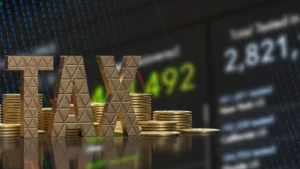At a recent G20 finance ministers’ gathering, wealthier countries resisted efforts to reform tax systems to bridge the inequality gap.
Oxfam Brazil’s research reveals a stark contrast in how G20 nations collect taxes.
Wealth taxes contribute merely 8 cents to every tax dollar, a fraction of what is obtained from consumption taxes, which account for 32 cents per dollar.
This discrepancy matters because consumption taxes, viewed as regressive by experts, disproportionately burden the less wealthy, amplifying financial disparities.
Contrarily, the affluent pay significantly less in property taxes. Implementing a 5% wealth tax on top earners could raise about $1.5 trillion a year, Oxfam Brazil proposes.

However, the path to fair taxation faces obstacles. G20’s wealthiest 1% income soared 45%, tax rates plummeted over four decades.
In 2022, this elite group amassed over $18 trillion, more than China’s GDP, benefiting from lower effective tax rates than average workers in several countries.
Brazil’s leadership in the G20 aims to counteract this trend by proposing a global tax on the super-rich to lessen worldwide inequality.

